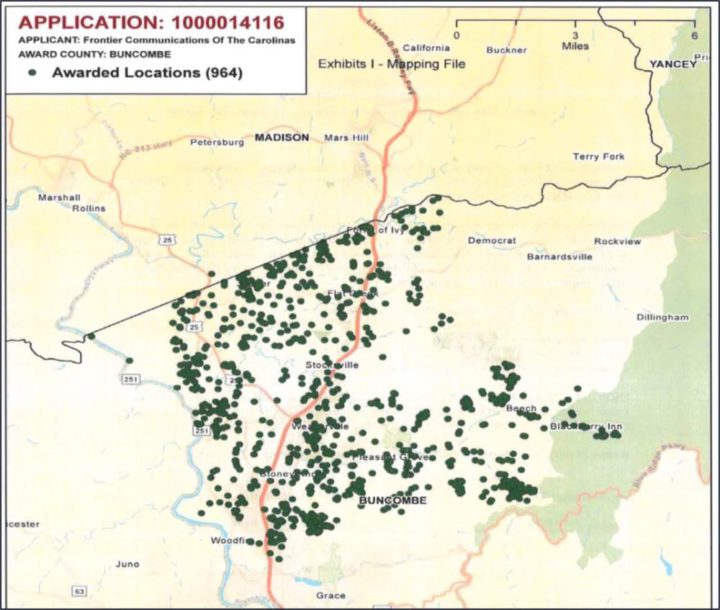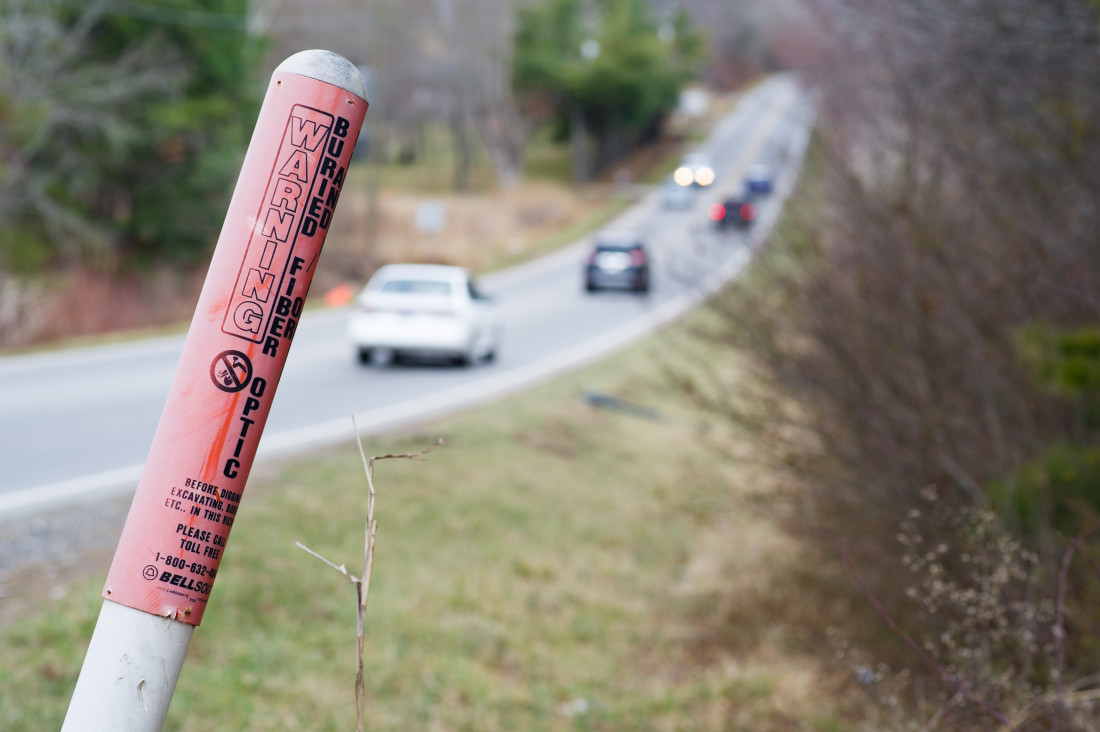High-speed fiber internet is on its way to several rural communities in Buncombe County, thanks to a $3.3 million state grant. Nearly 1,000 households will receive fiber internet service over the next two years, according to Buncombe County Director of Economic Development Tim Love.
The majority of Buncombe County has DSL internet, which is slower and more unreliable than fiber-optic internet. Justin Daniels, a Woodfin resident, says that he is unable to use streaming services with his home’s DSL connection.
“Anytime I try to watch Netflix or any other streaming service, I have to wait about 30 minutes for a movie to stop buffering. Even then, it’s usually really blurry and it cuts out a lot,” says Daniels. “The only way I can really enjoy a movie is if I go rent one. It’s really frustrating.”
Susan Pauley, a 63-year-old from Weaverville, says she can’t work from home due to poor internet service.
“I have DSL, but it doesn’t work well at all. My internet is so slow that I can’t really use Google, and most of my virtual meetings for work won’t even connect me,” says Pauley. “I commute to Asheville every day for my job, and while the drive really isn’t that bad, I am getting older and I would like the option to work from home every now and then.”
As Love explains, “Cities and urban areas are typically the first places that get fiber internet because they have the largest customer base in the most concentrated area. Unfortunately, smaller towns and more rural areas are often left out because the cost of installing fiber outweighs the money to be made. That is why grant funding is so important for projects like this; it helps to offset the cost and gives rural communities the same level of access and opportunity.”
DSL internet uses copper phone lines to transmit data, while fiber uses ultra-thin glass strands that carry light instead of electricity, allowing for significantly faster internet speeds and download times.
“Fiber internet is far more reliable than DSL, which is what the majority of residents in rural Buncombe are currently using,” says Love. “Being that we are in the mountains, satellite service is often unreliable as well, so fiber broadband is our best option.”
But there’s more to the issue than infrastructure. “Western North Carolina has two distinct issues in terms of addressing digital inclusion: infrastructure and affordability. While infrastructure is a key component, keeping the price of internet connectivity affordable is equally important,” says Sara Nichols, a regional planner for the Land of Sky Regional Council. “Per capita, affordability affected more people’s ability to connect to their services than the rural issues did.”
Status of the expansion
Buncombe County is partnering with Frontier Communications to expand fiber internet to households and businesses from Woodfin to the Buncombe/Madison County line and east into the Reems Creek and Ox Creek valleys.
Funding for the project comes from the state’s Growing Rural Economies with Access to Technology grant. The GREAT grant pays broadband providers to complete last-mile broadband infrastructure to unserved areas.
Frontier and Buncombe County each pledged an additional $291,995 to the project. Buncombe County is utilizing American Rescue Plan Act funds to finance its portion.

“The process for deciding how to use ARPA funds was a very community-based process, and the projects that were selected, such as the broadband expansion, target some of the biggest needs that our community is dealing with,” says Love. “Also, by using ARPA funds for the expansion project, a timeline was placed on it, as all of the federal COVID recovery money must be allocated by the end of 2024 and spent by the end of 2026.”
Any company participating in the GREAT grant program must participate in the Federal Communications Commission’s Affordable Connectivity Program, which provides eligible low-income households a $30 per month discount on high-speed internet service.
Frontier is offering new customers 1 gigabit fiber internet for $69.99, says Allison Ellis, senior vice president of business development for Frontier. “For someone with the ACP credit, the price for 1 gigabit fiber internet would be $39.99, while the cost of our 100 megabit plan would be completely covered.”
Ellis says that the company is in the second phase of its five-step plan. “We have crews coming out to do their surveys and make a detailed plan of the engineering. From there, we will create the materials list and start to get the materials on order.”
The subsequent phases include construction, network activation and plan closeout. Construction is slated to begin later this year and last through January 2025. Residential installation, network activation and the plan closeout are projected to begin next October and run through May 2025.
“Our goal is to get this project done as quickly as possible so that community members will have the best access to the internet,” Ellis says. “While our official end date is May 2025, I anticipate that the majority of new customers will have access well before then.”




I am enjoying fiber at a price of $50.00 per month, included in my electric bill. The service is uninterrupted and seamless.
I can’t say enough about French Broad Electric Co-op.
They began installations in the outermost areas who had no internet capabilities at all.
All I can say is I am sorry everyone can’t experience the streamlined , efficient, uncompromising efforts of FBEMC.